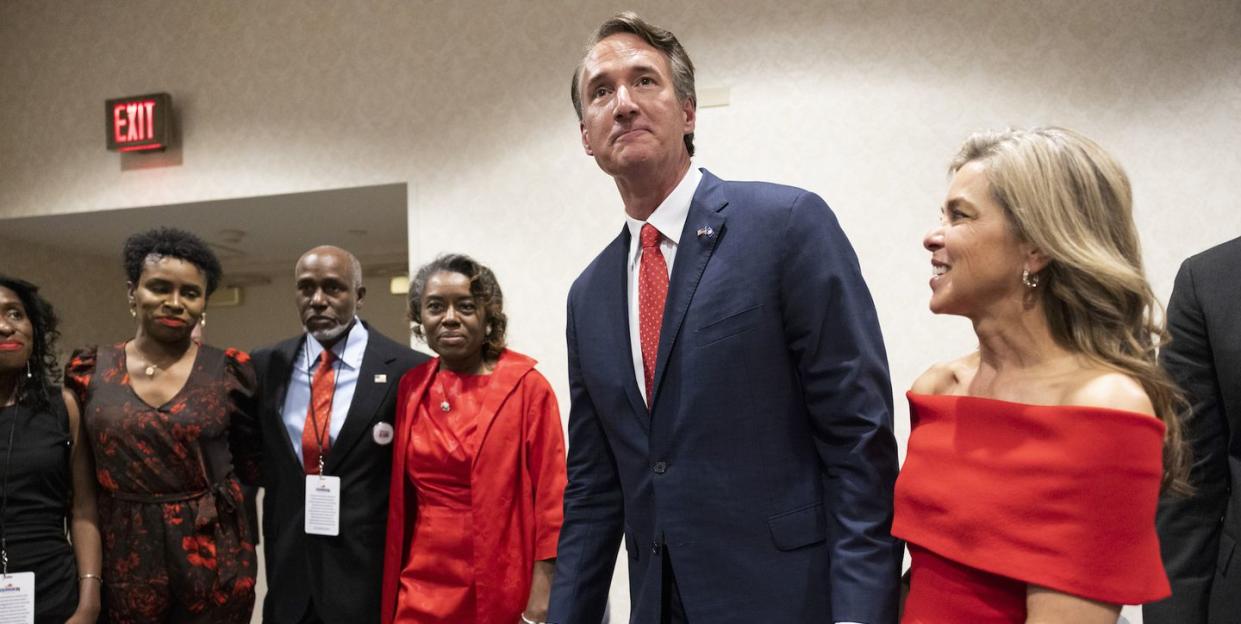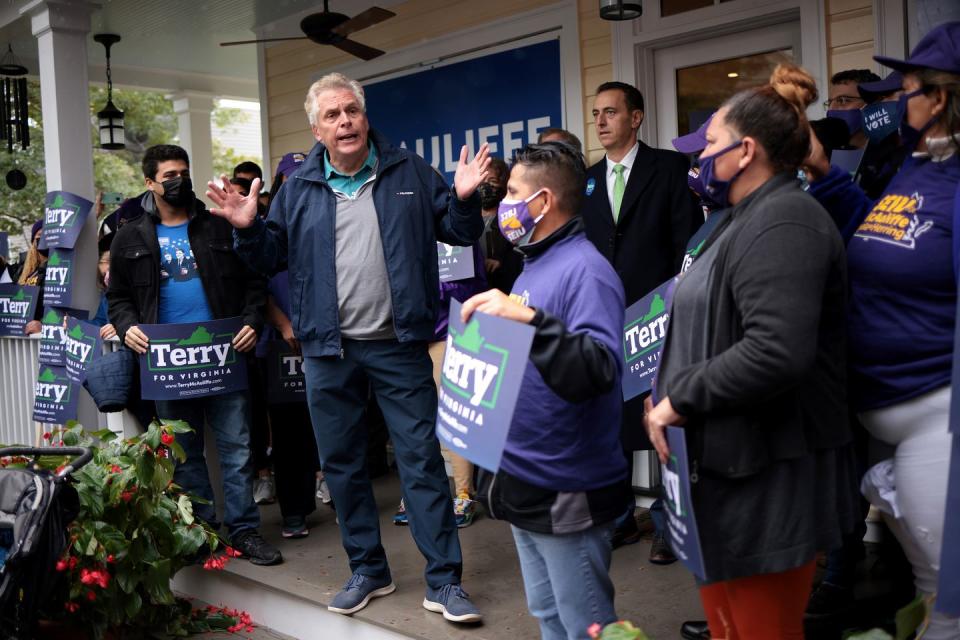There Was No Voter Fraud in Virginia Because a Republican Won

No one can actually say, at this point, why exactly Glenn Youngkin defeated Terry McAuliffe in the Virginia governor's race. That doesn't mean everyone isn't already saying everything, however, or that it doesn't matter that a Republican just won fairly handily in a state Joe Biden carried by 10 points a year ago.
Was it Critical Race Theory, a largely phantom issue in K-12 public schooling to which Youngkin devoted a lot of his campaign? (An issue cooked up by a conservative activist by his own admission, to which Fox News has devoted a huge amount of programming?) That probably energized the Republican base, and some polling indicates "education" was a top priority for Virginia voters. But there's also a compelling argument that the suburban (white) women who swung heavily towards Youngkin might have been thinking of school closures and other COVID-19 mitigation measures when it comes to "education." Zach Carter has written for The Atlantic on this, buttressed by statistics out of Northern Virginia that appear to indicate many thousands of parents pulled their kids out of public school during the pandemic. The school-board meetings have in many cases become opportunities to showcase the energy and power of grassroots reactionary fervor in America, not unlike the Tea Party of old, but there are probably people more quietly concerned about schools and kids.
That coalition—a surging right-wing Republican base in more rural areas convinced that Democrats are trying to destroy America itself, combined with gains in the suburbs among people who really just want their kid in school every day and know a Republican will deliver that—would make some sense and also spell some trouble for Democrats. In that scenario, the kind of upper-middle-class types who swung towards Biden in 2020 did not have an issue with Trump's authoritarianism, just the vulgarian stuff, and they're not altogether impressed with how Democrats have managed the American exit from pandemic life. Democrats who have not already done so will need to come to grips with the fact that an exit is necessary.

Or was it all down to Terry McAuliffe himself, a Clintonista retread whose campaign seemed to spend most of its time and energy trying to paint Youngkin, a former private-equity executive in the more traditional Republican mold (tax cuts and deregulation while playing footsie with the right-wing extremists in the base) as Trump reincarnate? It does not seem like this worked—Youngkin bills himself as a Businessman Outsider but also presents as a normal person who likes basketball—but more to the point, what was a vote for McAuliffe a vote for?
Or maybe all this is irrelevant, and folks once again want to find things over which they feel they have some control to explain the outcome. Political scientists traditionally see three main determining factors in an election: 1) the state of the economy; 2) whether the country is at war; and 3) how long the party currently in power has been there. Midterms—and off-year contests like this one—are almost always bad for the party in the White House. Perception of the American economic recovery from pandemic distress has gone negative along with Joe Biden's approval rating. It probably doesn't help that Democrats have assembled their usual circular firing squad in Congress, as they negotiate themselves to death without yet passing either infrastructure bill. But more fundamental factors may well be in play.
Speaking of which, one of the newer fundamentals in this country's politics is that elections are only legitimate if Republicans win them. At least according to Republicans. You may notice there have been zero concerns raised about Voter Fraud or any other phantasmagorical election threat in the Virginia race now that a Republican won. (This, not long after you could find a segment on Fox News in which you'd learn the only way a Democrat could win a statewide election in California[!] was through fraud.) This is because Republicans consider themselves the true polity: Real America. In this case, they chose who will wield power, so there's no need to backfill all the mumbo-jumbo about Hugo Chavez in order to declare the Democrat who got more votes illegitimate. Plenty were prepared to, though. Youngkin might not have gone as hard in the paint on this stuff, but a campaign surrogate, Republican state senator Amanda Chase, was talking it up at a rally last month. Reuters helpfully reminds us that Chase called on Donald Trump to declare martial law following his 2020 loss.
That's all baked in. The scary part, maybe, is that the average voter does not really care about the ongoing threat to democracy. Is that new? And is it a failure on the part of Democrats? Can we fault a national political media that has mostly returned to who's-up-and-who's-down coverage 10 months after an outgoing president fomented an insurrection? Or is it down to another fundamental: most people just think about their jobs, their houses, and their kids. Most folks, particularly swing voters, do not walk into the voting booth thinking of themselves as guardians of democracy, nor do they spend a lot of time digging into the latent authoritarianism in the conservative movement that allowed Trump to flourish, and which has gone on flourishing now he's retired to the buffet line at Mar-a-Lago. The consequences of these weird fundamental consistencies in American politics combined with the rise of genuine anti-democratic fervor could be scary indeed.
You Might Also Like


